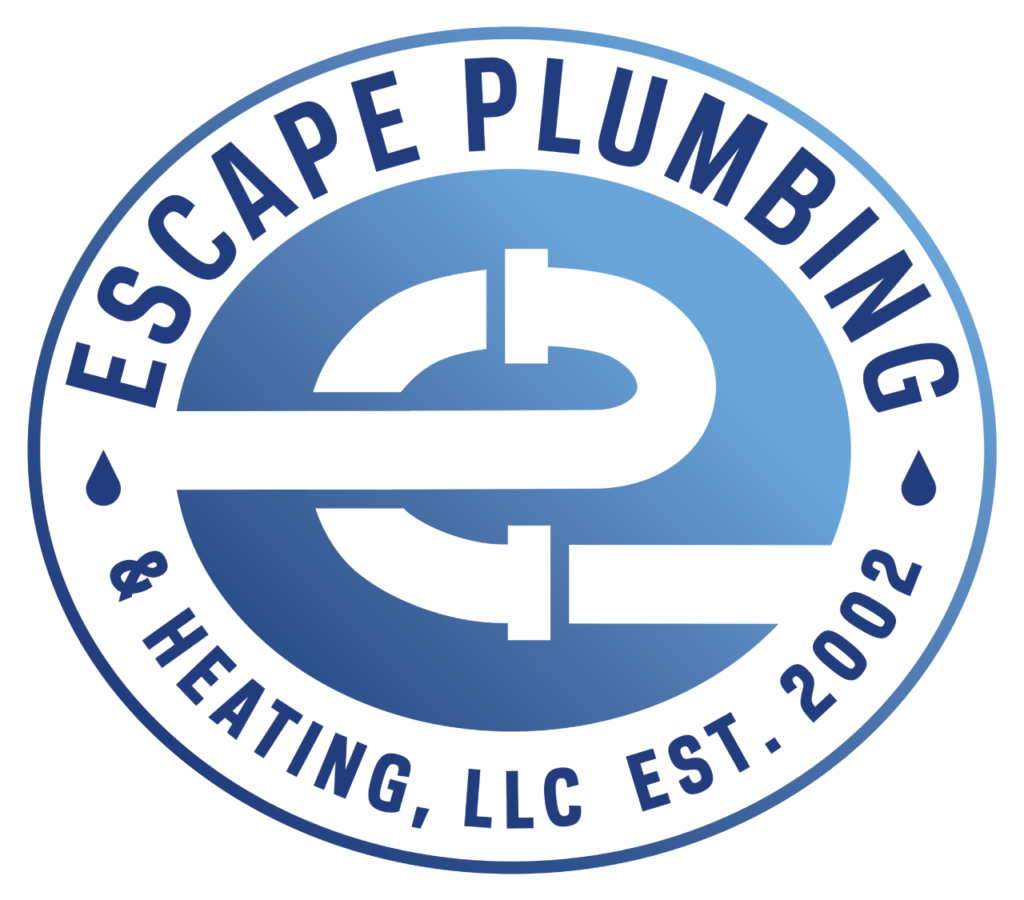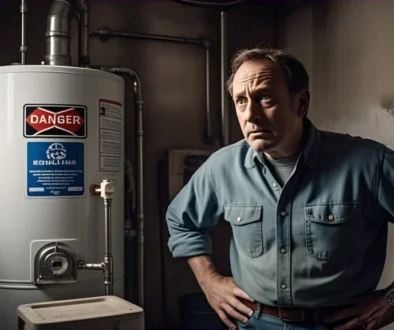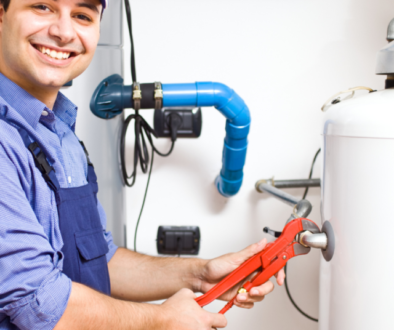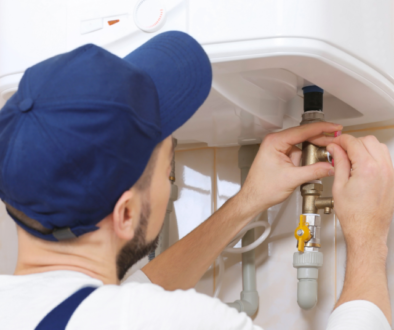Signs That Point to Water Heater Replacement in Litchfield
Is your water heater in Litchfield giving you trouble? You’re not alone. Many homeowners face the challenge of deciding when to replace this essential appliance. This guide will help you identify key signs that indicate it’s time for a new water heater, understand how age affects performance, and evaluate the cost-benefit of replacement. By recognizing these indicators early, you can avoid unexpected breakdowns and ensure your home has a reliable hot water supply.
Identify Common Indicators of Water Heater Replacement Needs
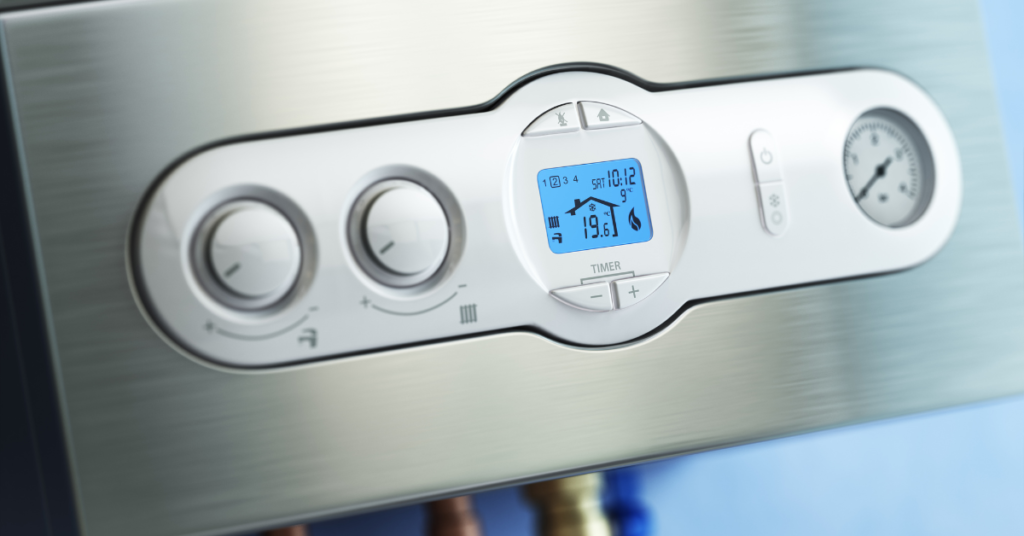
As a plumbing expert in Litchfield, you need to recognize the signs that your water heater requires replacement. Be alert to leaks, corrosion, temperature fluctuations, strange noises, and the unit’s age. Watch for discolored water and rising energy bills. These indicators can help you avoid costly repairs and ensure efficient hot water supply in your home.
Check for Signs of Leaks or Corrosion on the Unit's Exterior
Inspect your water heater’s exterior regularly for signs of leaks or corrosion, especially in Litchfield’s humid New England climate. Look for rust spots, water pooling around the base, or mineral buildup on pipes and connections. These issues can indicate a failing water heater or boiler system. If you notice any of these problems, consider calling a professional to assess whether you need a new unit or if duct repairs can extend its life.
Monitor Temperature Fluctuations in Your Water Supply
Pay attention to temperature fluctuations in your shower, bathtub, and bathroom sinks. If you notice inconsistent hot water temperatures or sudden cold spells, your water heater may be struggling. These issues can stem from a faulty heating element, thermostat problems, or sediment buildup in the tank. In some cases, your furnace or pump might also be affected, leading to broader heating issues in your home. Monitor these changes closely and consider professional inspection if problems persist:
| Symptom | Possible Cause | Action |
|---|---|---|
| Inconsistent hot water | Faulty heating element | Professional inspection |
| Sudden cold spells | Thermostat issues | Thermostat replacement |
| Gradual temperature decline | Sediment buildup | Tank flushing or replacement |
Assess for Strange Noises During Operation
Listen for unusual sounds coming from your water heater, as they can indicate serious issues. Popping, crackling, or rumbling noises often suggest sediment buildup, which can reduce efficiency and lead to leaks. If you hear hissing or sizzling, it could signal a leak in your plumbing and heating system. Strange noises might also point to problems with your air conditioning or electric water heater components. Address these sounds promptly to ensure customer satisfaction and prevent costly repairs. Consider professional leak detection services if you’re unsure about the source of the noise:
| Sound | Possible Issue | Action |
|---|---|---|
| Popping/Crackling | Sediment buildup | Flush tank or replace unit |
| Rumbling | Overheating | Check thermostat or heating element |
| Hissing/Sizzling | Possible leak | Professional inspection |
Evaluate the Age of Your Water Heater
The age of your water heater is a crucial factor in determining if it’s time for a replacement. Most water heaters last 8-12 years, depending on maintenance and water quality. Check your unit’s serial number to find its manufacture date. If your water heater is approaching or has surpassed this age range, you may notice decreased efficiency in your water supply or increased need for plumbing services. Consider upgrading to a newer model to prevent potential water damage and ensure a reliable hot water source for your toilet and other fixtures:
| Water Heater Age | Recommended Action |
|---|---|
| 0-5 years | Regular maintenance |
| 6-10 years | Increased monitoring |
| 11+ years | Consider replacement |
Look for Discolored or Rusty Water
Check your water for discoloration or rust particles, as these can indicate internal corrosion in your water heater. Rusty water may also stem from issues in your pipes or garden irrigation system. If you notice persistent discoloration, especially when running hot water, schedule a professional inspection. Regular water heater maintenance can help prevent these issues and extend your unit’s lifespan. Remember, discolored water might also signal a potential gas leak, so prioritize your safety and contact a plumbing expert promptly to address any concerns and ensure customer satisfaction.
Review Your Rising Energy Bills for Unusual Increases
Keep an eye on your energy bills for unexpected increases, which may indicate a failing water heater in your Litchfield home. As efficiency decreases, your water heater works harder, consuming more energy to maintain water quality. This can lead to higher costs, especially if you have a basement installation prone to leaks. Regular monitoring of your bills can help you identify potential issues early, saving you money and preventing water damage in the long run.
Time marches on, and so does your water heater. Its age tells a story of wear and efficiency, one you can’t ignore.
Understand the Impact of Water Heater Age on Performance

As your water heater ages, its performance can significantly impact your home’s plumbing system. Understanding how age affects efficiency, reliability, and water quality is crucial for maintaining your sink and tank. You’ll learn about typical lifespans, repair frequency, and technological advancements in newer models. This knowledge will help you take pride in making informed decisions about upgrading or repairing your unit, ensuring optimal performance and cost-effectiveness.
Recognize Typical Lifespan for Different Water Heater Types
Understanding the typical lifespan of different water heater types can help you plan for replacement and avoid unexpected breakdowns. Traditional tank water heaters generally last 8-12 years, while tankless models can serve you for up to 20 years with proper maintenance. Plumbers advise customers that factors like water quality, usage patterns, and regular valve maintenance can impact longevity. Electric water heaters often outlast gas models, but both require periodic pump services to ensure optimal performance and customer satisfaction.
Identify How Age Affects Efficiency and Reliability
As your water heater ages, its efficiency and reliability naturally decline. You’ll notice increased energy consumption and potential fluctuations in water temperature, especially if you’re using natural gas or electrical systems. In New England’s climate, older units may struggle to maintain consistent performance, leading to higher utility bills and more frequent repair needs. Keep in mind that aging refrigerant systems in heat pump water heaters can also affect efficiency. Regular maintenance can help mitigate these issues, but eventually, replacement becomes the most cost-effective solution:
| Age Range | Efficiency Impact | Reliability Concerns |
|---|---|---|
| 0-5 years | Minimal loss | Few issues |
| 6-10 years | Noticeable decline | Increased maintenance |
| 11+ years | Significant loss | Frequent repairs |
Learn When Older Models Need More Frequent Repairs
As your water heater ages, you’ll notice an increase in repair frequency, especially if you live in Litchfield, Connecticut. Older models may struggle with the region’s hard water, requiring more frequent water treatment. You might find yourself calling for heating repairs more often, particularly during Connecticut’s cold winters. If you own a heat pump water heater, pay attention to declining efficiency, as these systems can be sensitive to age. Consider tracking repair costs; when they approach the price of a new unit, it’s time to replace your water heater.
Comprehend How Older Units Affect Water Quality
As your water heater ages, you may notice a decline in water quality, which can affect your daily life in Litchfield. Older units often accumulate sediment, impacting the efficiency of the heating element and potentially introducing contaminants into your water supply. This can be particularly noticeable after a long hike in Topsmead State Forest, when you’re eager for a refreshing shower. Regular inspections by a skilled technician can help identify these issues early, ensuring your water remains clean and safe. Don’t ignore signs like discolored water or unusual odors; they may indicate it’s time to consider a replacement or thorough drain cleaning to maintain optimal water quality.
Explore Technology Advancements in Newer Models
When considering a new water heater for your Litchfield home, you’ll find impressive technological advancements in newer models. These innovations can significantly improve your residential plumbing system’s efficiency and performance. Modern units often feature smart controls, allowing you to monitor and adjust your heating system remotely, even during emergency service situations. Some advanced models integrate seamlessly with your kitchen appliances, optimizing hot water distribution throughout your home.
Consider Economic Factors of Upgrading Versus Repairing
When deciding between repairing or upgrading your water heater in Litchfield, consider the long-term economic impact. If your unit requires frequent water heater service or drain cleaning, the cumulative costs may exceed the price of a new, efficient model. Professional plumbing services can help you assess whether investing in a modern system with improved heat retention and filtration capabilities will lead to significant energy savings. Factor in potential rebates or incentives for energy-efficient upgrades when making your decision.
As water heaters age, their performance declines. Recognizing the signs of this decline is crucial for homeowners to avoid unexpected cold showers or costly emergencies.
Analyze Performance Issues Indicating a Replacement
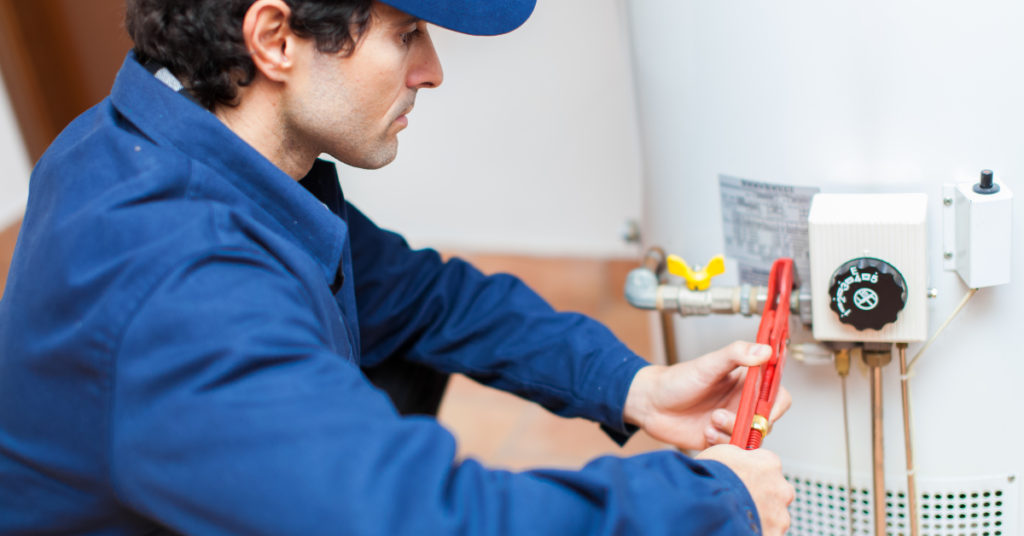
Assess your water heater’s performance to determine if replacement is necessary. Watch for persistent issues, temperature inconsistencies, and limited hot water availability. Pay attention to unusual odors, slow recovery times, and sediment buildup. These signs often indicate your unit needs emergency water heater repair or installation. Understanding these factors helps you make informed decisions about your water heating system, including potential sump pump upgrades.
Clarify Persistent Issues Requiring Constant Fixes
If you find yourself constantly calling for water heater services in Litchfield, it’s time to consider replacement. Persistent issues like frequent pilot light outages, recurring leaks, or repeated thermostat failures indicate your unit is struggling. These problems not only disrupt your daily routine but can also impact other household tasks, from washing clothing to using your garbage disposal. Pay attention to how often you need repairs, especially if they’re becoming more frequent or costly. A well-functioning water heater shouldn’t require constant attention, so recurring issues often signal it’s time for an upgrade, potentially including a new sump pump installation for improved efficiency:
| Issue | Frequency | Action |
|---|---|---|
| Pilot light outages | Monthly | Consider replacement |
| Leaks | Every few months | Evaluate for new unit |
| Thermostat failures | Twice a year | Discuss options with professional |
Investigate the Frequency of Temperature Inconsistencies
Pay attention to how often you experience temperature fluctuations in your hot water supply. If you notice frequent shifts from hot to cold during showers or while using faucets, your water heater may be struggling to maintain consistent temperatures. These inconsistencies can indicate a failing heating element, thermostat issues, or sediment buildup in the tank. Track these occurrences over time to determine if they’re becoming more frequent or severe:
| Frequency | Severity | Recommended Action |
|---|---|---|
| Occasional (1-2 times/month) | Mild | Monitor and schedule maintenance |
| Regular (weekly) | Moderate | Professional inspection |
| Constant (daily) | Severe | Consider replacement |
Assess Hot Water Availability for Household Needs
Evaluate your household’s hot water availability regularly. If you notice a decrease in hot water supply during peak usage times, such as morning showers or evening dishwashing, your water heater may be struggling to meet demand. This could indicate reduced capacity due to sediment buildup or a failing heating element. Track your hot water usage patterns and compare them to your unit’s capacity to determine if it’s time for an upgrade:
| Household Size | Recommended Capacity | Signs of Inadequacy |
|---|---|---|
| 1-2 people | 30-40 gallons | Running out after one shower |
| 3-4 people | 40-50 gallons | Cold water mid-shower |
| 5+ people | 50+ gallons | Insufficient hot water for daily tasks |
Review Unusual Odors Emitted From the Unit
Be alert to unusual odors coming from your water heater, as they can signal serious issues requiring immediate attention. A rotten egg smell often indicates bacterial growth in the tank, while a metallic odor might suggest corrosion. If you detect a burning smell, it could point to an electrical problem or overheating. These odors not only affect your water quality but can also pose safety risks. Address them promptly to maintain your home’s comfort and safety:
| Odor Type | Possible Cause | Action Required |
|---|---|---|
| Rotten egg | Bacterial growth | Tank cleaning or replacement |
| Metallic | Corrosion | Professional inspection |
| Burning | Electrical issues | Immediate professional service |
Gauge Hot Water Recovery Time After Use
Monitor your water heater’s recovery time after heavy usage to assess its performance. If you notice longer waits for hot water to replenish, especially after tasks like running the dishwasher or doing laundry, your unit may be struggling. A well-functioning water heater should recover quickly, providing consistent hot water supply. Keep track of recovery times and compare them to your unit’s specifications:
| Tank Size | Normal Recovery Time | Concerning Recovery Time |
|---|---|---|
| 30-40 gallons | 20-30 minutes | Over 45 minutes |
| 50-80 gallons | 30-40 minutes | Over 60 minutes |
| 80+ gallons | 40-50 minutes | Over 75 minutes |
Understand the Implications of Sediment Buildup
Sediment buildup in your water heater can significantly impact its performance and lifespan. You might notice a decrease in hot water output, unusual noises, or increased energy bills as sediment accumulates at the bottom of the tank. This buildup insulates the heating element, forcing it to work harder and less efficiently. If you live in Litchfield, where hard water is common, you may experience more rapid sediment accumulation, making regular maintenance crucial for your water heater’s longevity.
Failing water heaters aren’t just inconvenient. They can be dangerous.
Conclusion
Recognizing signs to replace your water heater in Litchfield is crucial for maintaining a safe, efficient, and comfortable home. By monitoring performance issues, evaluating safety risks, and understanding cost-benefit considerations, you can make informed decisions about water heater replacement. Regular inspections and prompt attention to warning signs can prevent costly repairs, ensure consistent hot water supply, and improve energy efficiency. Ultimately, staying proactive about your water heater’s condition not only enhances your daily comfort but also protects your property and potentially increases its value in the long run.
